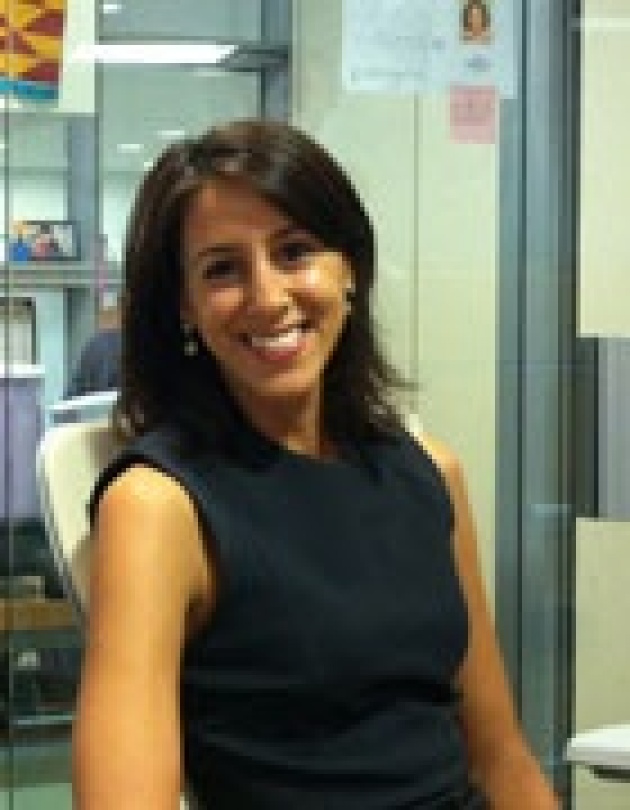 Priya Jaisinghani is a leading expert on mobile banking and the director of USAid's Mobile Solutions Team. As part of the Afghan Development Project, we interviewed her about the concept of mobile money, social and digital technology, and Afghan women's education.
Priya Jaisinghani is a leading expert on mobile banking and the director of USAid's Mobile Solutions Team. As part of the Afghan Development Project, we interviewed her about the concept of mobile money, social and digital technology, and Afghan women's education.
Film Annex: Can you tell us about yourself and the philosophy behind Mobile Money project?
Priya Jaisinghani: USAID is promoting mobile money in Afghanistan because it offers an enormous opportunity to propel the country forward. Mobile money can be the way for Afghans to access affordable, convenient financial services so they can send money to friends and family in need, borrow money when life offers new opportunities to them, and save money to build a better future for themselves. But, actually, there is much more to mobile money -- it unlocks new opportunities that we're only just discovering. It offers the opportunity to democratize philanthropy -- giving money directly to people in need ---, to promote entrepreneurship and "micro-jobs" whereby two people can engage in commerce knowing that they are connected by a way of giving/receiving payment, and countless other new ideas. In this case, mobile money not only have profound impacts on families but on the broader Afghan economy. Earlier this year I wrote a paper which outlines a provocative vision on how mobile money can transform the world.
FA: What do you look for in this project and its goals?
PJ: Our goal is to see the massive uptake of mobile money so that women and men can begin to live in a safer, cash-light Afghanistan that has less opportunities for corruption and massively greater access to financial services.
FA: What is social media's role in the Mobile Money project?
PJ: There will be many questions when it comes to mobile money. Is it safe? Who do I call if something goes wrong? Why are there fees? While I fundamentally believe that the mobile operators in Afghanistan are trying to offer intuitive, affordable, accessible mobile money services, there are still many questions that consumers will have. I think social media can offer unbiased feedback to consumers on these issues as they begin to learn about these new services. In addition to getting information to customers, I think there's a great opportunity for social media outlets to channel information from customers. It can provide platforms for customers to tell companies about their experience with the products, good/back agent feedback, and other needs. The more people participate, the more likely they are to get the products to meet their needs.
FA: Can social and digital technology influence a digital, cultural revolution? If yes, how so?
PJ: We are already seeing the power of technology in connecting people, mobilizing them to take action, and enable more people to access tools & information that have evaded them for so long. Because of its low cost (which I expect will come down even further), the mobile phone is perhaps the most significant tool and is, in many ways, a great equalizer. We can imagine an Afghanistan where phones allow people to learn outside of the schoolhouse, to save money without the bank, to vote without the ballot box, to connect with people in distant parts of the country. But if Afghanistan is going to “leapfrog” into a digital age, one thing we absolutely must pay attention to is the massive gap between men & women who own phones. There is no other country in the world where the gap in mobile ownership between men & women is as high as in Afghanistan. Because women are often the least advantaged – they are less likely to be literate, have financial independence, and less free in their societies – they are not yet part of the mobile revolution. Sadly, the prospect of using phones to connect, to learn, to access mobile money is still so elusive to millions of women across the country.
FA: As a successful woman in business, what advise would you give to young women in Afghanistan and other developing countries?
PJ: Be brave! There are so many people out there who will tell you “you can’t” or “you shouldn’t”, but you can and you should. There are amazing stories of brave women in Afghanistan that are helping build better businesses, better communities and a better country. Women such as Roya Mahboob and Afghani Barakzai are doing incredible things. They share the courage of their convictions and a deep passion for what they do. If you’re passionate about an idea, the time is now. Be brave even in the face of adversity.
FA: How is education an important factor for women's independence and self esteem?
PJ: Hugely important. I will tell you the story of my mother, who is my hero. When I was little, my mother and father divorced. My mom didn’t have a lot of money and yet, she was able to take out a loan in order to fund her education. Thanks to that loan and to her degree, she was able to put herself on a new path towards prosperity. In fact, she now even has her PhD! My mom’s story is not unique – millions of women are using even basic education to put themselves on a better trajectory for themselves and for their families. In my mind, school not only gives you the opportunity to build up skills but is the time to reflect on what you believe in and get ready to face the world beyond. When women know what they believe in and have the tools to carry out their passion, they can be unstoppable.
FA: Digital and social media have changed the political scenarios of several countries in the last two years. Can they also affect the educational and financial landscape? If yes, how so?
PJ: The short answer, I believe, is yes. I would say first, however, that technology and social media cannot do everything. While I am a huge technology enthusiast, I also know that children need teachers to learn, doctors to help them heal, lawyers to fight for their rights. Technology cannot replace these services but it can drastically enhance them. Let's take the example of education: I believe most people will still need educators to curate a curriculum for students. But to complement the role of the educator, there are ways for students to learn in fundamentally new ways -- from their peers or other teachers that live all around the world. And there is a whole new world of content they can draw from as more content is contextualized and put into local language. Technology and social media platforms can also serve as the platform for students to voice their needs to those in charge. I was recently in Pakistan where there is a new app for students/parents to report when a teacher is absent from school. It allows the ultimate beneficiaries -- students -- to give feedback in real-time if they aren't getting the services they need. We (everyday people) now have a chance to have our voices heard and it's a privilege, a right, and also a responsibility if we are going to help be the change they want to see in the world.
 Priya Jaisinghani is a leading expert on mobile banking and the director of USAid's Mobile Solutions Team. As part of the Afghan Development Project, we interviewed her about the concept of mobile money, social and digital technology, and Afghan women's education.
Priya Jaisinghani is a leading expert on mobile banking and the director of USAid's Mobile Solutions Team. As part of the Afghan Development Project, we interviewed her about the concept of mobile money, social and digital technology, and Afghan women's education.


